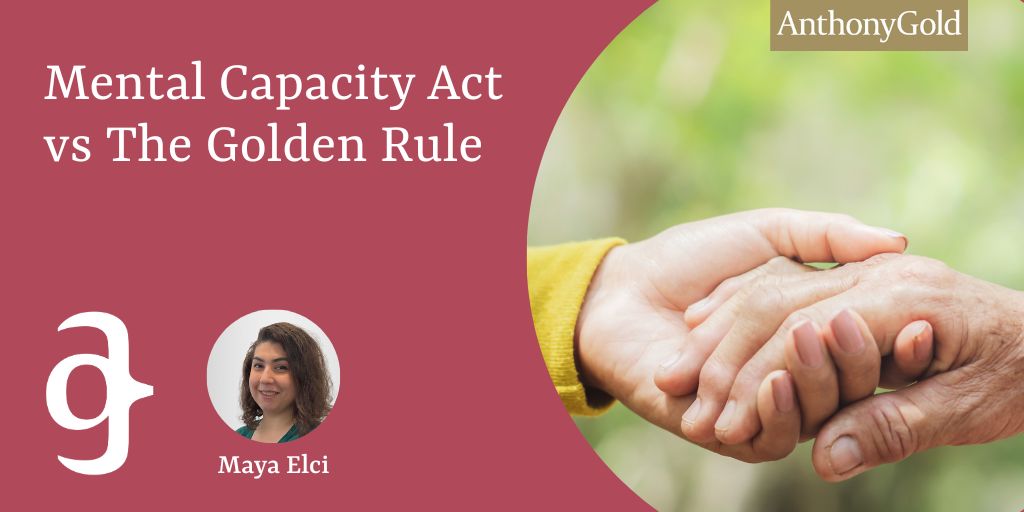The Mental Capacity Act vs The Golden Rule: Biria v Biria

The recent case of Biria v Biria examined the key issues, including mental capacity, undue influence, and fraudulent calumny.
Biria v Biria – Detaills of the case
Mr Biria, aged 97 at his death in 2022, left an estate valued at approximately £17 million, with assets in England, America, and Iraq.
During Mr Biria’s lifetime, concerns were raised surrounding Mr Biria’s lack of mental capacity to manage his financial affairs, and whilst the Court ordered a capacity assessment, two of his children were obstructive. Amid concerns, they facilitated the withdrawal of substantial sums of money from Mr Biria’s bank account. Despite confirmation that Mr Biria lacked capacity, a will was prepared and executed, excluding one of Mr Biria’s sons, named Ali, based on unfounded allegations against him.
Following Mr Biria’s death, Ali (“Claimant”) initiated a claim against seven Defendants, including six siblings, as well as Mr. Biria’s American attorney, disputing the validity of Mr. Biria’s will on the grounds of his father’s lack of testamentary capacity and claims of undue influence by two of his siblings, Hamid and Nasrin.
The Claimant further argued that Hamid and Nasrin poisoned Mr. Biria’s mind and perception of him, leading to his exclusion from the will based on false accusations, known as fraudulent calumny. Mr Biria’s American attorney had also asserted that Ali had ‘skimmed’ profits from the family business, further deteriorating Mr Biria’s relationship with the Claimant.
None of the Defendants participated in the trial, leaving the Claimant’s grounds uncontested.
Medical evidence regarding Mr Biria’s capacity was presented, highlighting the obstacles faced in assessing Mr Biria with reference to concerns surrounding Hamid and Nasrin’s control over Mr Biria’s finances.
Deputy Master Bowles concluded that Mr Biria lacked the capacity to comprehend and approve the content of his testamentary document, casting doubt on its validity.
Additionally, the Court deemed Hamid and Nasrin’s behaviour as constituting actual undue influence, rendering the will invalid.
Despite the Court’s ruling on capacity, the claim of fraudulent calumny failed, as the Court determined that Mr Biria’s allegations against the Claimant stemmed from his dementia and the comments made by Mr Biria’s American attorney. The absence of deliberate poisoning of Mr. Biria’s mind by the Defendants led to the dismissal of this part of the claim.
A different legal test is applied to determine whether a person has capacity to make a Will as to that of being able to manage one’s finances. However, given the Court of Protection’s declaration that he lacked the capacity to manage his financial affairs, it is not surprising that the Court agreed that Mr Biria’s lack of mental capacity extended to his lack of testamentary capacity.
On 19 June 2024, Anthony Gold will be hosting a seminar with 10 Old Square Chambers titled ‘Anatomy of a 1975 Act Claim’ during which costs will be discussed in more detail. For further information or to sign up, click on the banner below:
* Disclaimer: The information on the Anthony Gold website is for general information only and reflects the position at the date of publication. It does not constitute legal advice and should not be treated as such. It is provided without any representations or warranties, express or implied.*

No comments